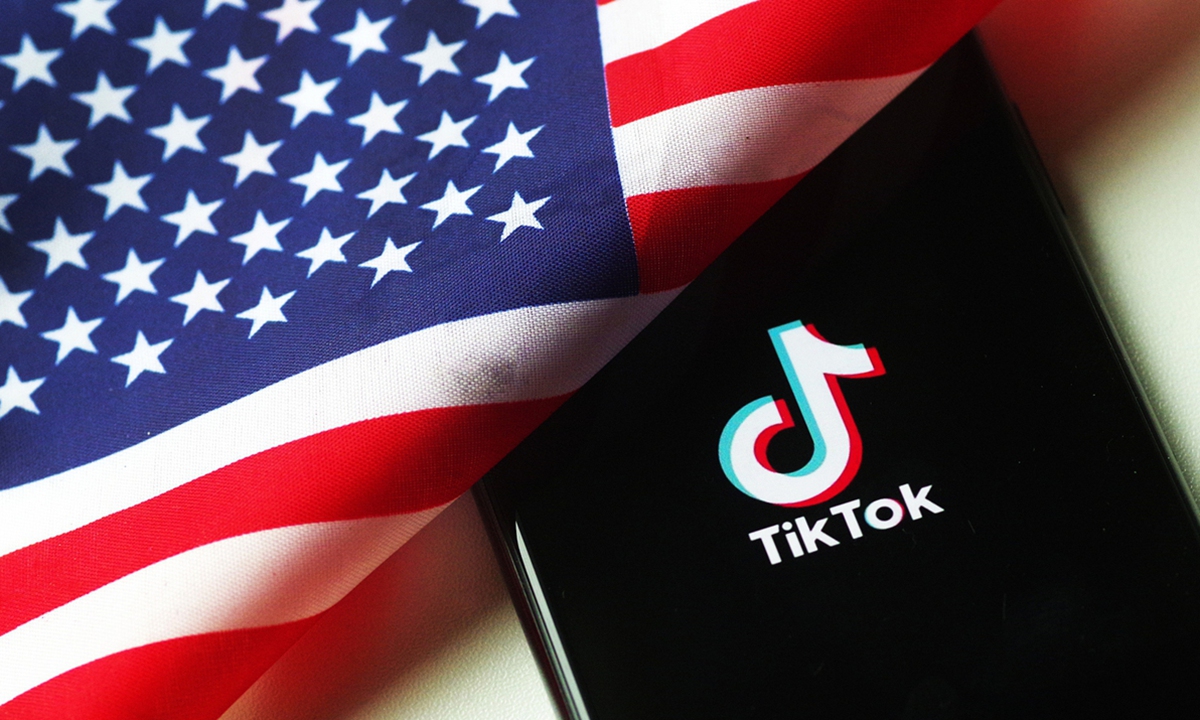China will defend TikTok’s rights to the end: Global Times editorial
Source: Global Times Published: 2020/9/28 15:23:40

TikTok US Photo: VCG
On Sunday, the US District Court for the District of Columbia granted an injunction against the order from the administration of Donald Trump that would have banned TikTok from being downloaded from US app stores.TikTok's attorney told the court that the prohibition would be no different than the government locking everyone out from a town square. The court did not block a much broader ban set to come into effect on November 12 in the US. This would effectively make TikTok unusable. Therefore, the destiny of TikTok is still uncertain.
The ruling is welcome. It echoes morality and common sense. It not only served as a buffer to the Trump administration's insane suppression of TikTok, but also laid bare the gap between such suppression and law and public support. Last week, another court in the US made a similar ruling regarding WeChat download. We hope the spirit of these rulings can build up a legal protection for TikTok and WeChat and a turnover can occur.
Currently, the negotiation between TikTok and relevant US companies is still ongoing. Their respective explanation for the agreement is contradictory. It must be pointed out that this negotiation was forced upon TikTok. Trump's threat to shut down TikTok puts its parent company, ByteDance, in a very disadvantageous position in terms of negotiations. What Trump's advisors want is a treaty signed with coercion.
Overall, the US's China policy is demented now. Its maximum pressure to suppress Chinese companies and products (including TikTok and WeChat) largely stems from its selfish needs to aid Trump's re-election. Its outrageous instigation caters to the extreme sentiments of some people. It also severely damages the interests and reputation of the US as a highly developed commercial society.
Some 3,500 American enterprises sued the US government last week. They demand compensation for their losses caused by the Trump administration's imposition of tariffs on Chinese-made goods. Trump administration has defined trade war in a very crude and subjective way. They believe that products imported from China are 100 percent Chinese goods. But in fact, there are lots of American elements in them. The interests of American companies contained in many of those products are even greater than those of their Chinese counterparts. When Washington cracks down on those imports from China, American companies will also suffer, and feel even more pain.
TikTok conducts operations in the US in full compliance with the US laws. It has been expressing its willingness to cooperate with the US side to eliminate American concerns pertaining to information security. It's obviously not difficult to find a way that can ensure the security of this application, while at the same time not breaching business rules. The US government requests that ByteDance must completely withdraw from TikTok's operation and hand over its control on TikTok to a US entity. This is blunt bullying. It's a robbery of Chinese company's achievements under the guise of security. This is a flagrant subversion of international business ethics and rules.
Humanity is at the crossroads of whether to maintain basic global business rules and fairness or to allow bullying to prevail in the name of national security. Whether Chinese companies like TikTok can survive under the US hegemony and continue to do businesses with the US and the West is the touchstone of whether the American spirit of rule of law and business rationality can outweigh American ultra-nationalist thinking.
We hope the US will regain the genuine spirit of rule of law and rationality. At the same time, China is fully prepared to fight resolutely. The US is shamelessly robbing a Chinese company in an attempt to drive it away from the products it has created and make US companies its new owner. China won't allow this. China's resistance will be of universal significance for safeguarding the rights of companies in all countries. We will defend our rights to the end. For the sake of TikTok and other Chinese companies, we will act to prevent globalization from becoming Americanization.
Posted in: EDITORIAL